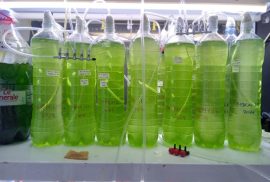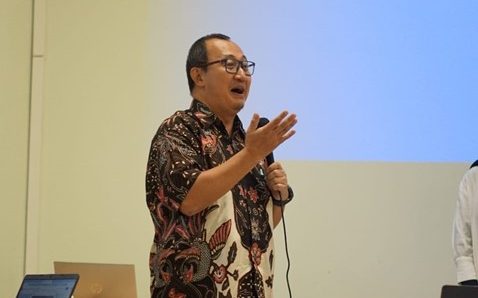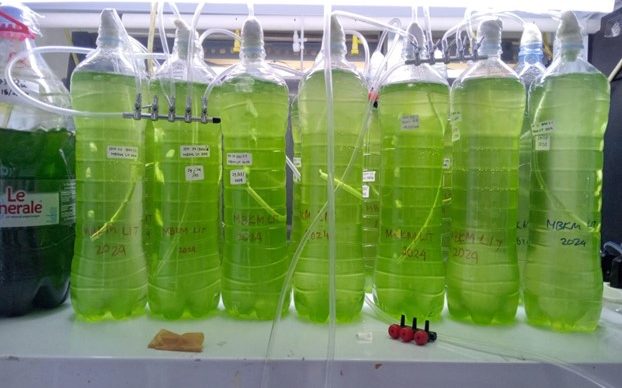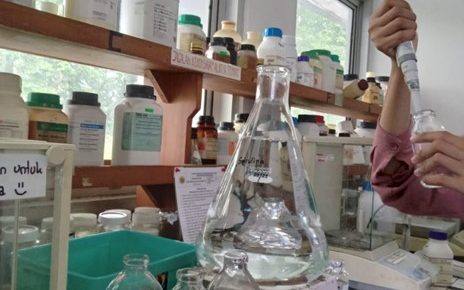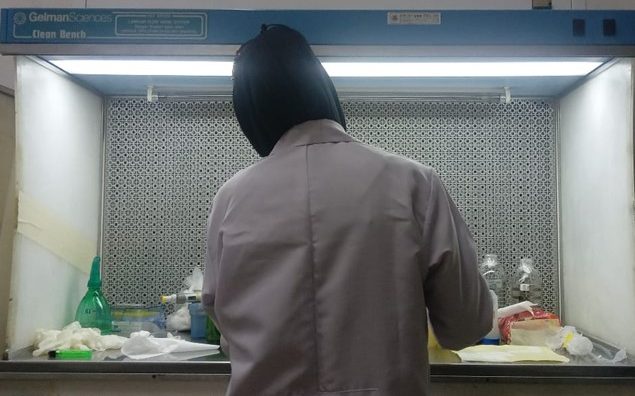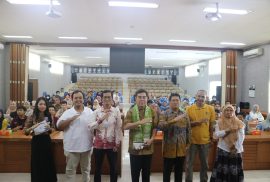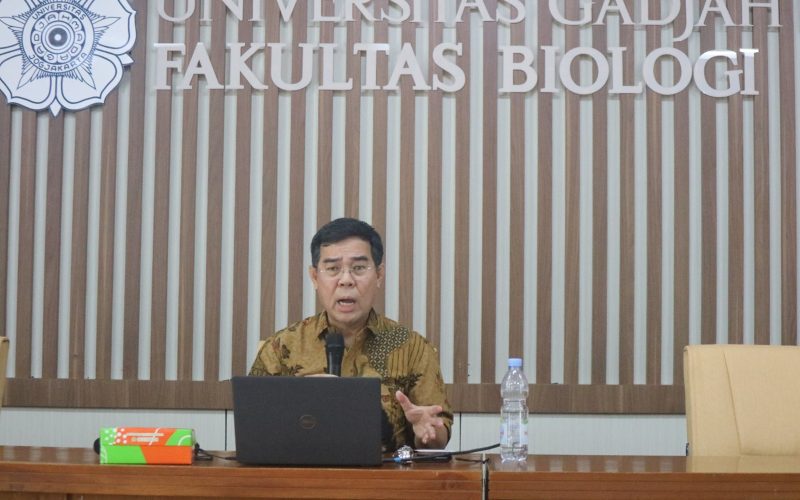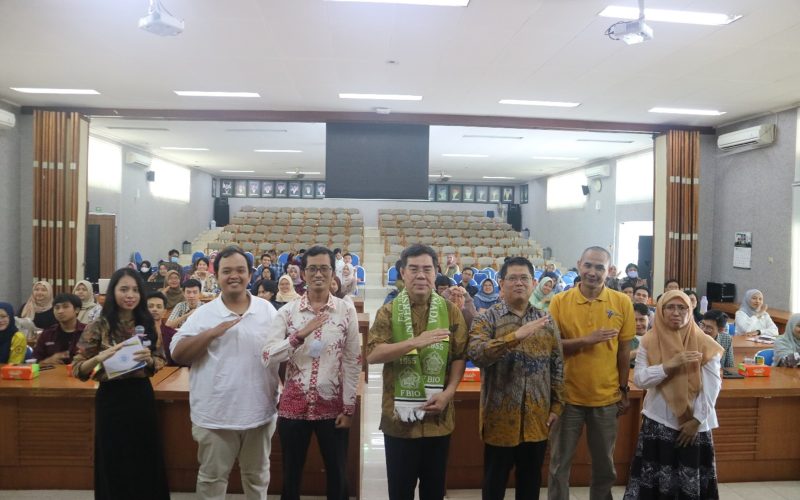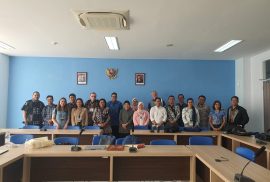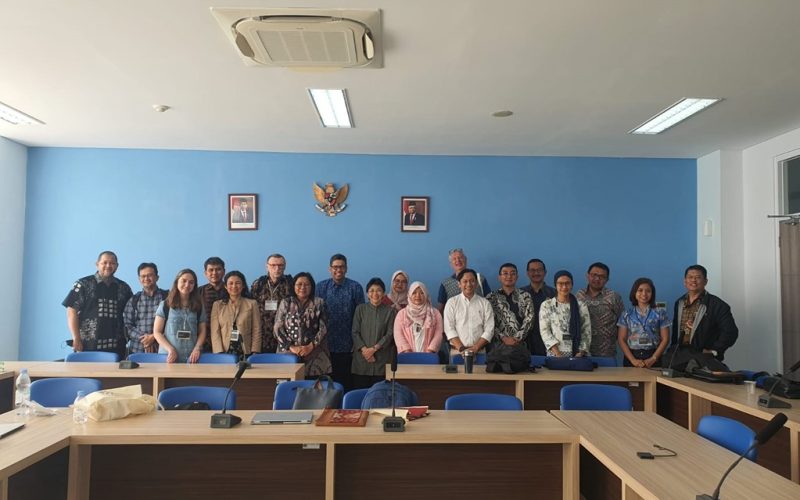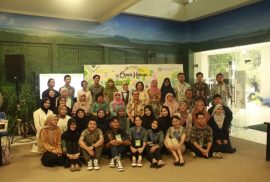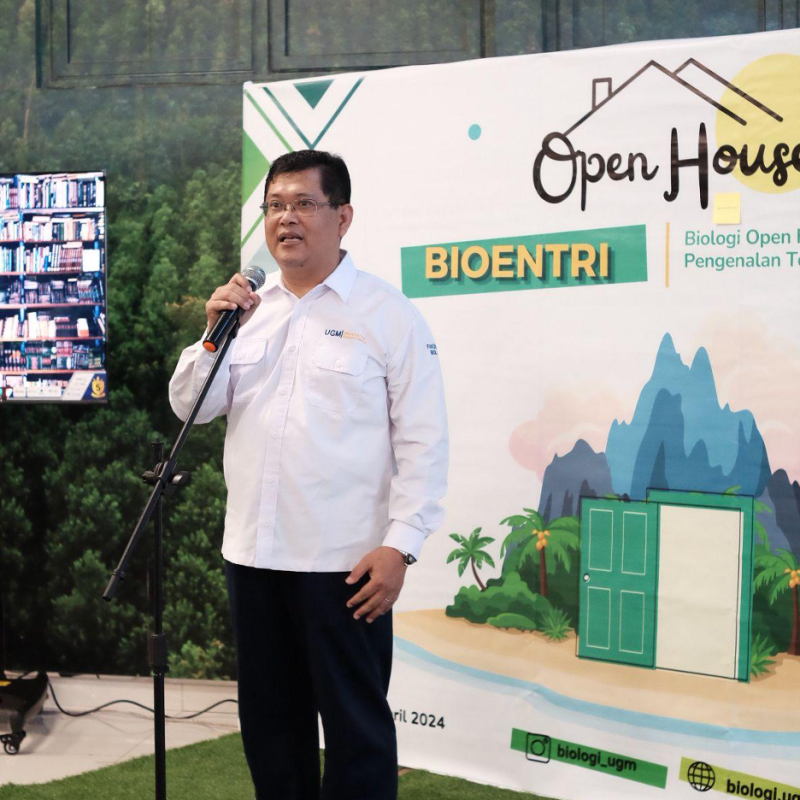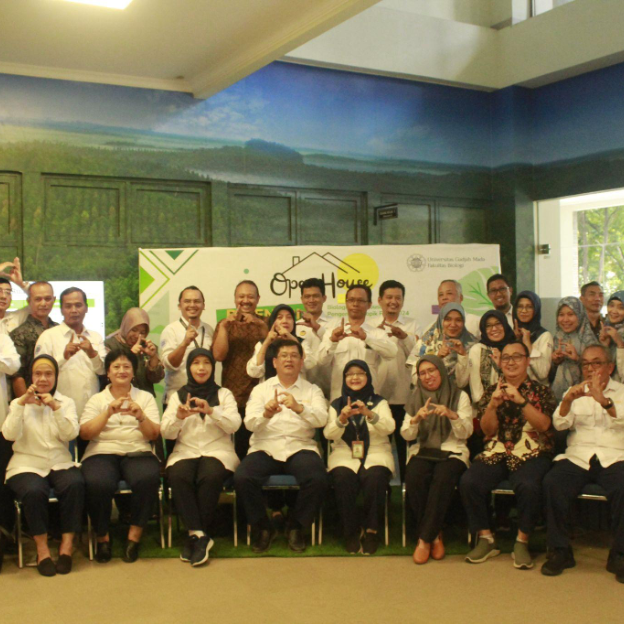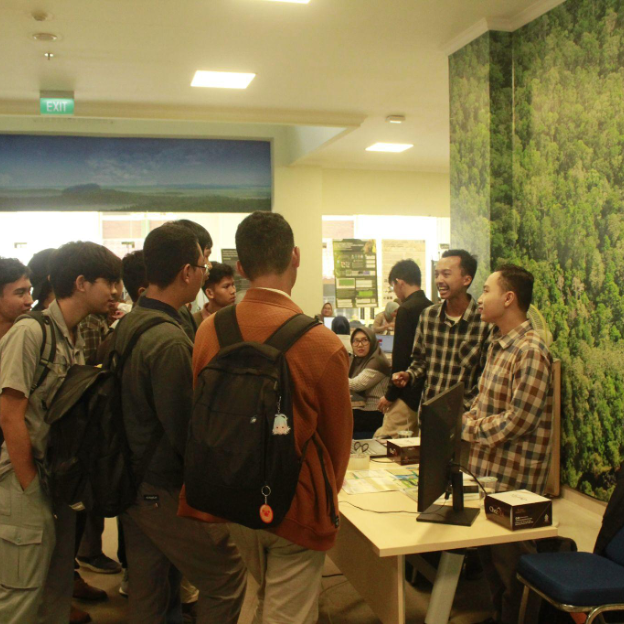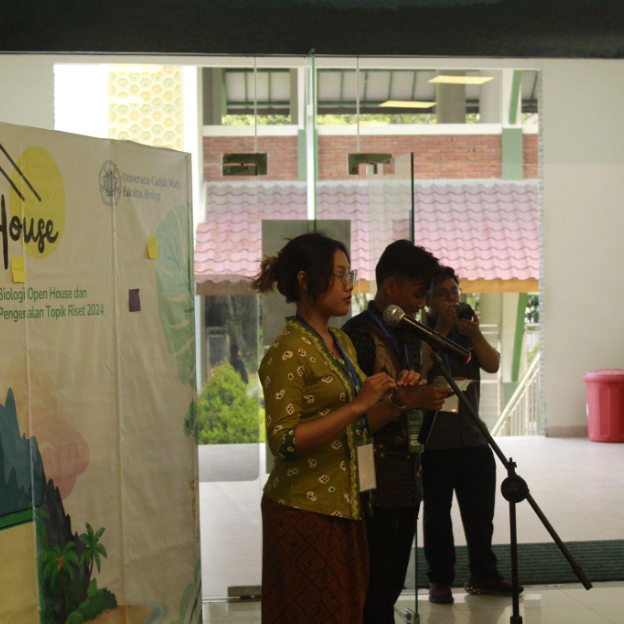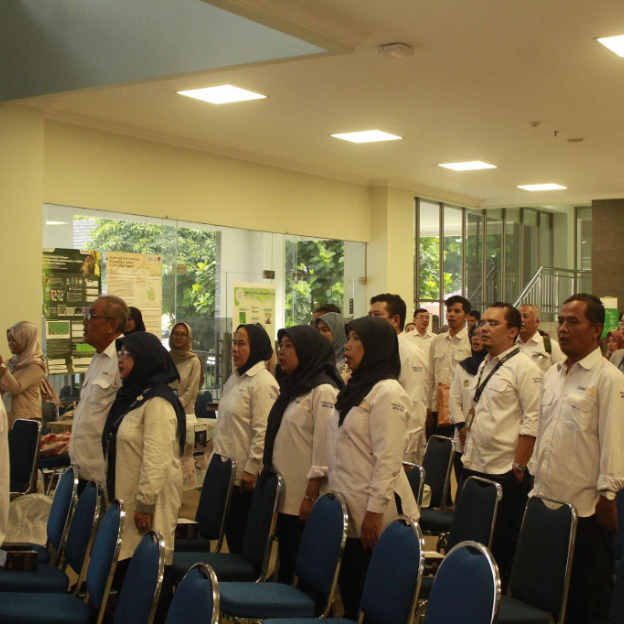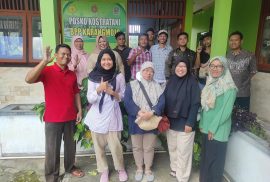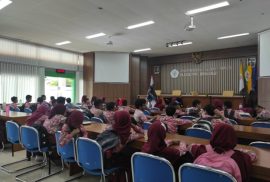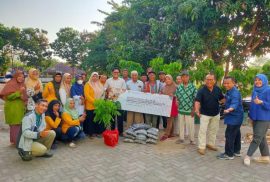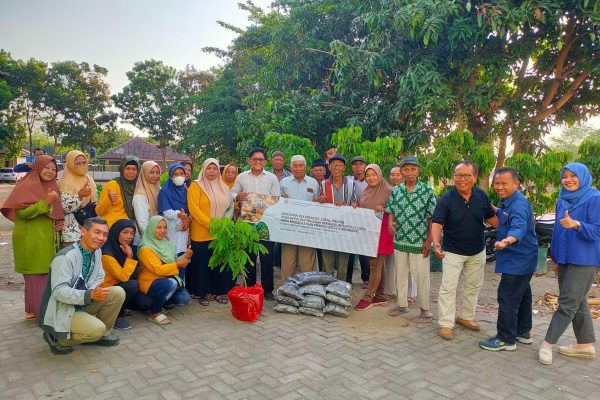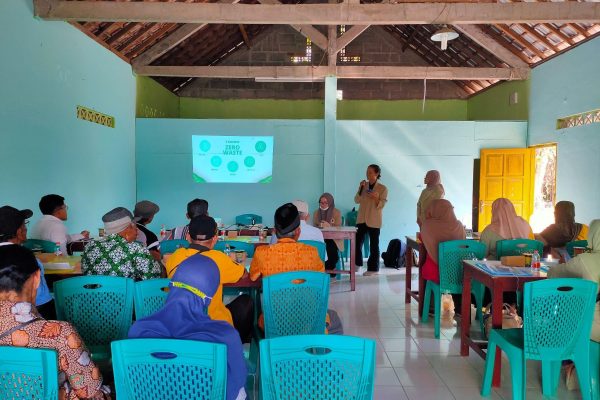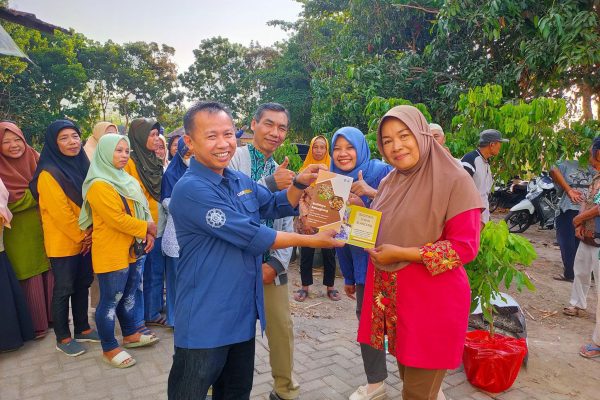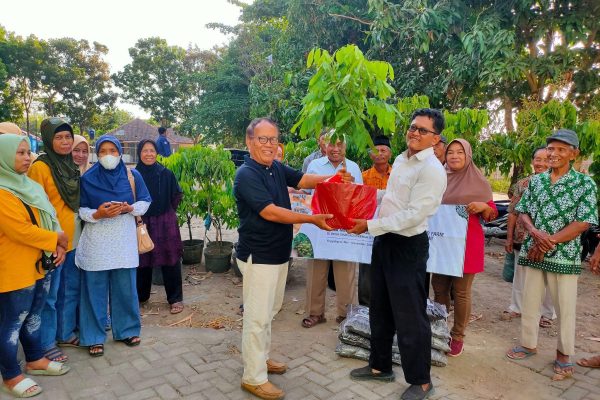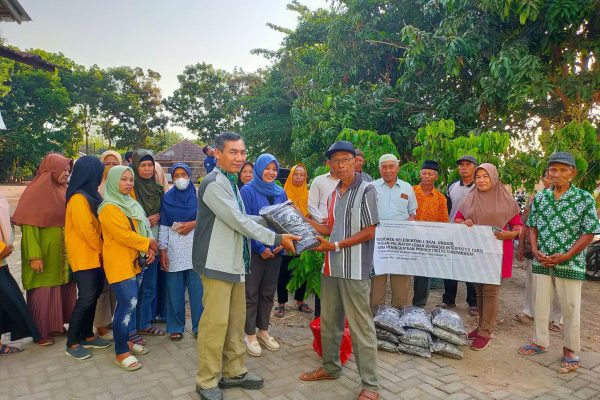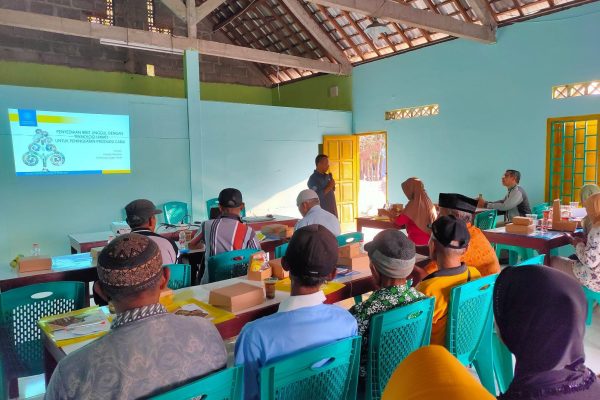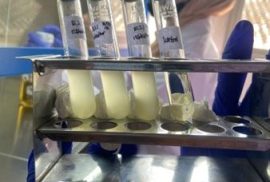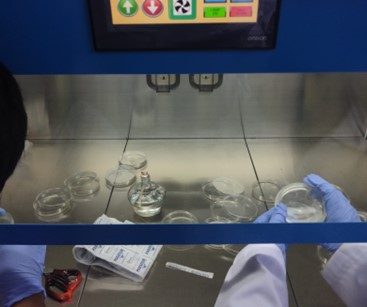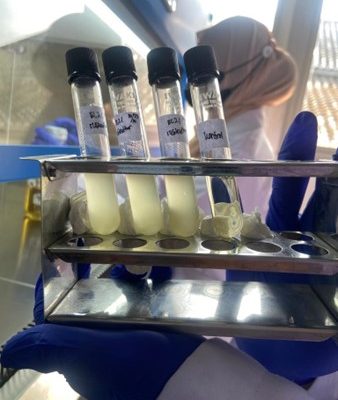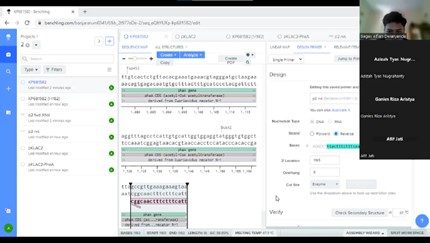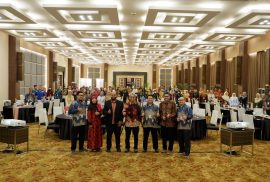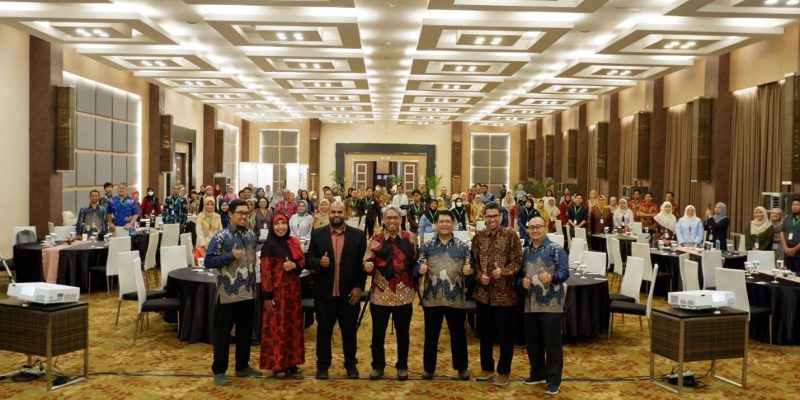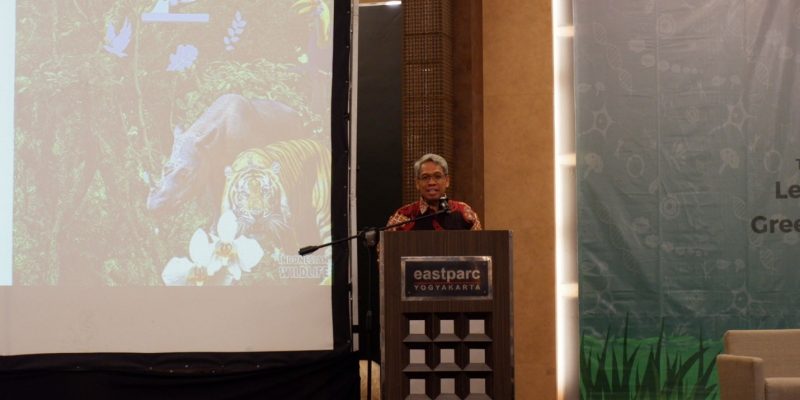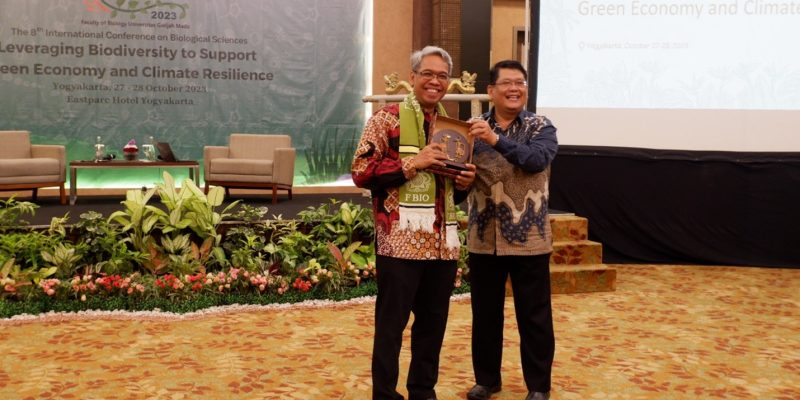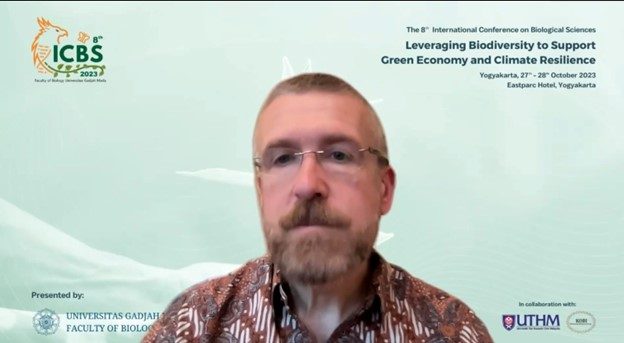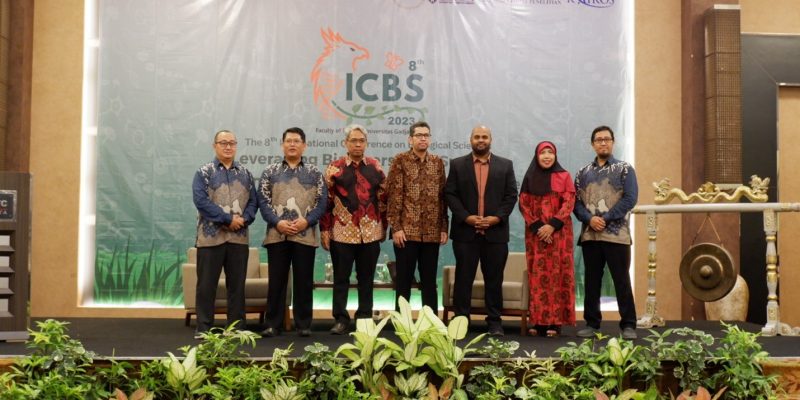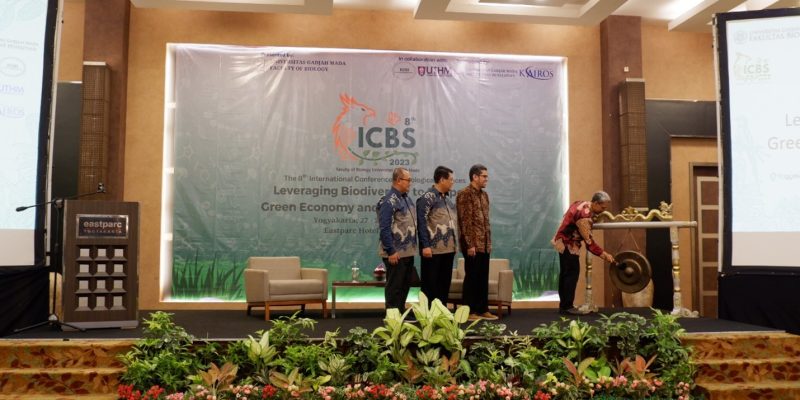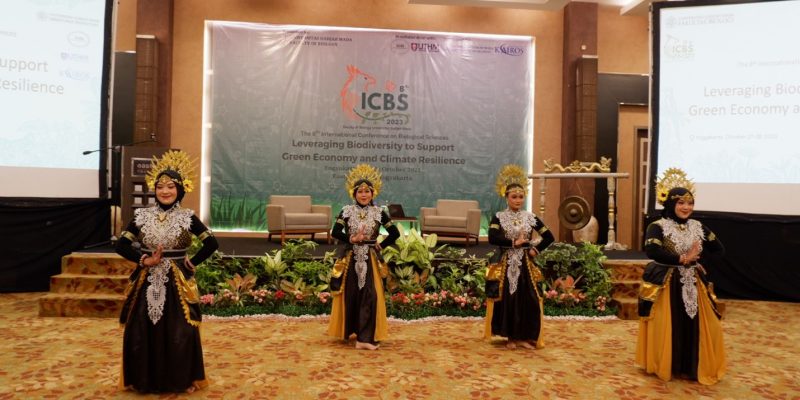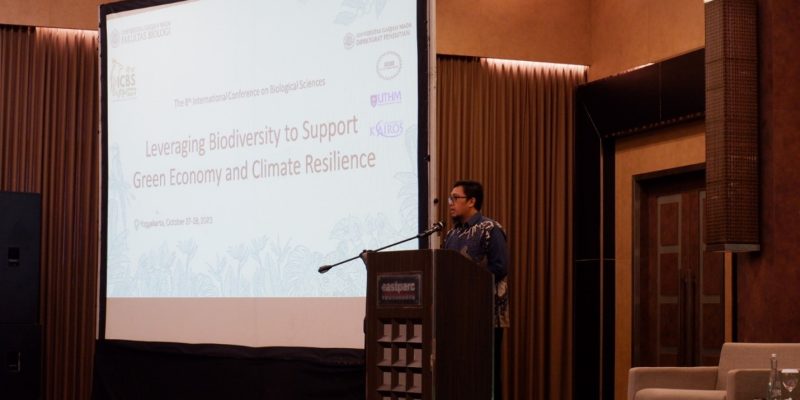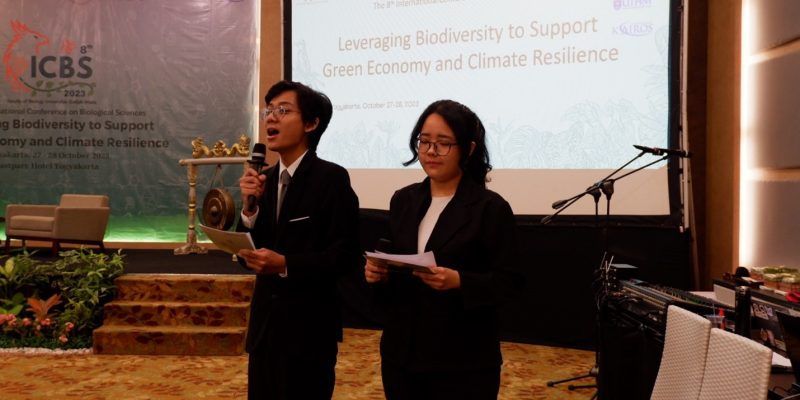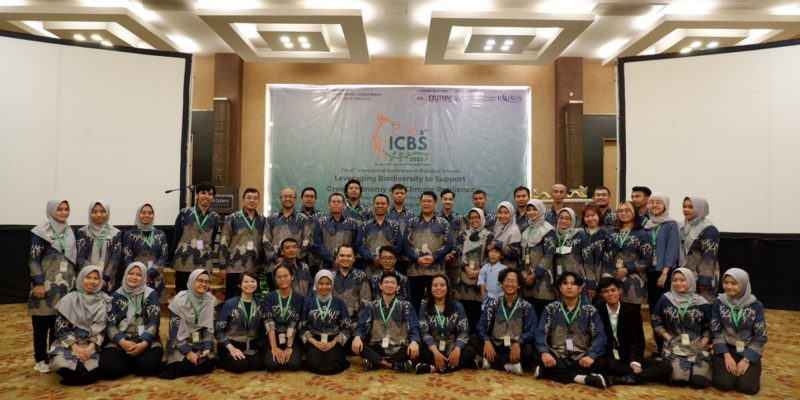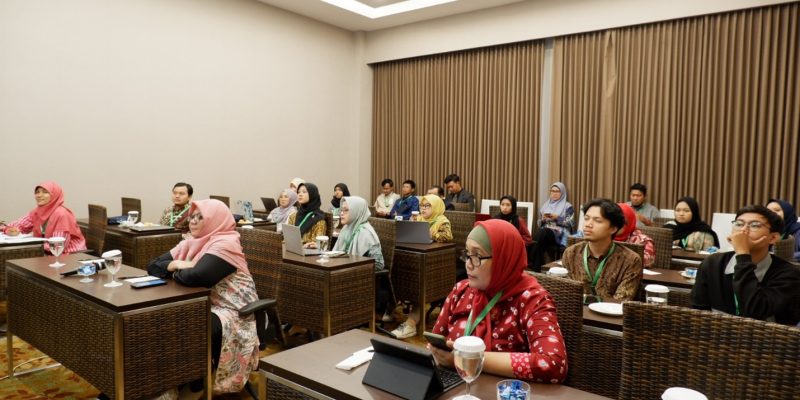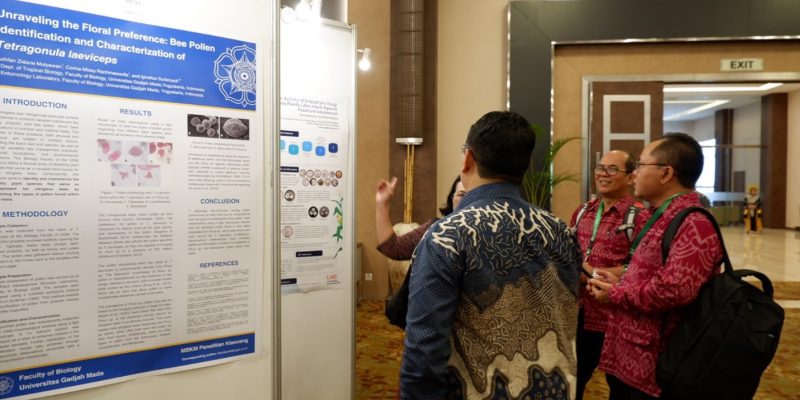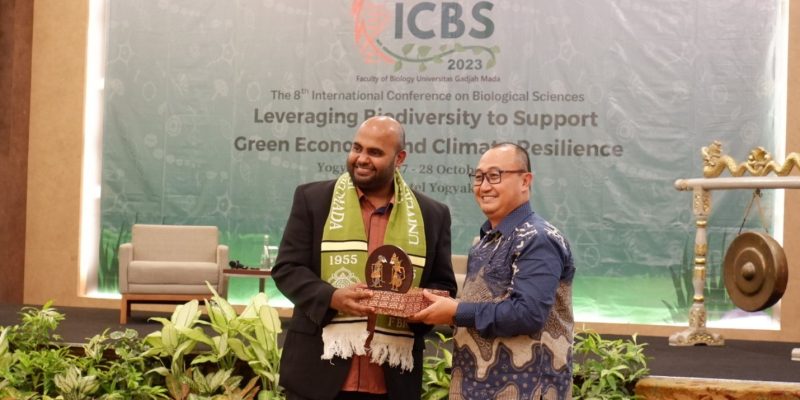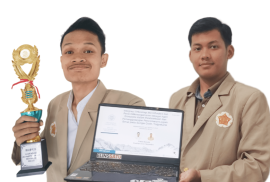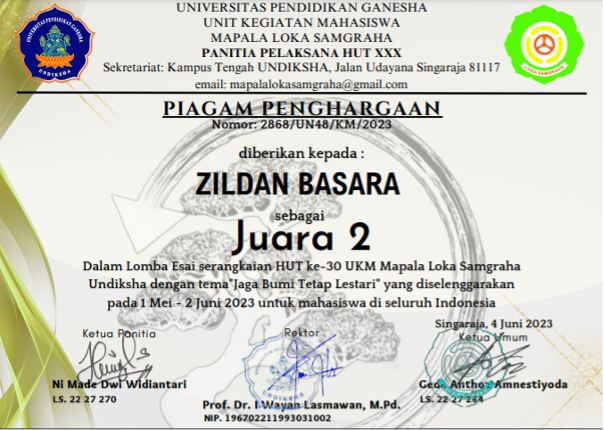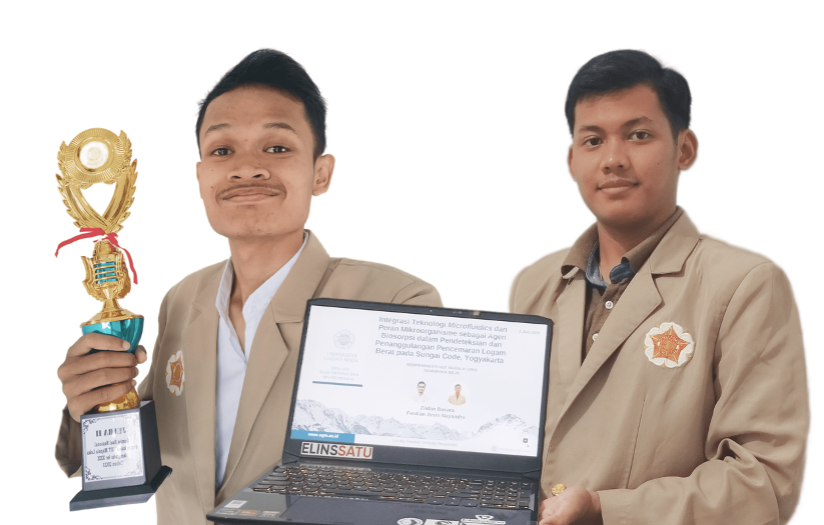Innovation
SDGS point tags: SDG 4, 8, 9, 12, 17
YOGYAKARTA, INDONESIA — February 19, 2024 — A team of lecturers led by a lecturer from the Faculty of Biology at Universitas Gadjah Mada (UGM) held an engaging Focus Group Discussion (FGD) with millennial farmers from Kalurahan Karangmojo, Kapanewon Karangmojo, Gunungkidul Regency. This event is part of the Faculty of Biology’s initiative to encourage dialogue and collaboration between the academic world and field practitioners to enhance sustainable agriculture.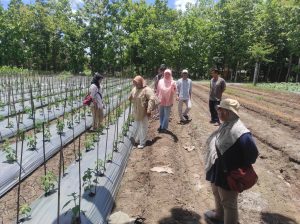
The FGD was held on February 18, 2024, in the meeting room of the Agricultural Extension Center of Kapanewon Karangmojo. The participating millennial farmers represented various backgrounds and experiences in agriculture, ranging from organic farmers to advanced technology farmers. They shared ideas, experiences, and challenges they face in running agricultural businesses in the modern era. The team of lecturers facilitating this FGD was an interdisciplinary inter-faculty team, including members from the Faculty of Biology (Zuliyati Rohmah, S.Si., M.Si., Ph.D. Eng., and Ludmilla Fitri Untari, S.Si., M.Si.), the Faculty of Mathematics and Natural Sciences (Umi Mahnuna Hanung, S.Si., M.Si.), and the Faculty of Pharmacy (Dr. Cintya Nurul Apsari, S.T.P., M.Si.).
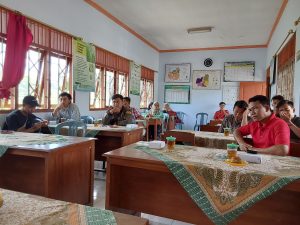 The discussions held during the FGD and field visits covered various topics, including the use of technology in agriculture, organic farming practices, natural resource management, and marketing strategies for agricultural products. The results of these discussions will form the basis for developing more relevant and responsive educational, research, and community service programs tailored to the needs of millennial farmers.
The discussions held during the FGD and field visits covered various topics, including the use of technology in agriculture, organic farming practices, natural resource management, and marketing strategies for agricultural products. The results of these discussions will form the basis for developing more relevant and responsive educational, research, and community service programs tailored to the needs of millennial farmers.
The Faculty of Biology UGM hopes that this FGD will be the beginning of a sustainable partnership between the university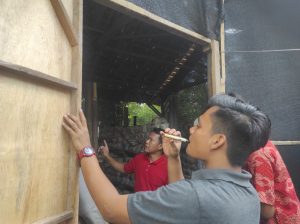 and millennial farmers, bringing tangible positive impacts to the advancement of the agricultural sector in Indonesia. This activity is closely related to several Sustainable Development Goals (SDGs) adopted by the United Nations. The dialogue and collaboration between the Faculty of Biology UGM and millennial farmers can increase farmers’ productivity and income (SDG 1: No Poverty) and support sustainable agriculture that enhances food security and nutrition (SDG 2: Zero Hunger). This initiative also develops more relevant educational programs for millennial farmers (SDG 4: Quality Education), supports economic growth and job creation in the agricultural sector (SDG 8: Decent Work and Economic Growth), and encourages innovation and modernization of agricultural practices (SDG 9: Industry, Innovation, and Infrastructure). The focus on organic farming practices and natural resource management supports sustainable production and consumption (SDG 12: Responsible Consumption and Production), and the sustainable agriculture discussed in the FGD contributes to climate change mitigation (SDG 13: Climate Action). Furthermore, the collaboration between the Faculty of Biology UGM and millennial farmers is a concrete example of partnerships that support the achievement of sustainable development goals (SDG 17: Partnerships for the Goals).
and millennial farmers, bringing tangible positive impacts to the advancement of the agricultural sector in Indonesia. This activity is closely related to several Sustainable Development Goals (SDGs) adopted by the United Nations. The dialogue and collaboration between the Faculty of Biology UGM and millennial farmers can increase farmers’ productivity and income (SDG 1: No Poverty) and support sustainable agriculture that enhances food security and nutrition (SDG 2: Zero Hunger). This initiative also develops more relevant educational programs for millennial farmers (SDG 4: Quality Education), supports economic growth and job creation in the agricultural sector (SDG 8: Decent Work and Economic Growth), and encourages innovation and modernization of agricultural practices (SDG 9: Industry, Innovation, and Infrastructure). The focus on organic farming practices and natural resource management supports sustainable production and consumption (SDG 12: Responsible Consumption and Production), and the sustainable agriculture discussed in the FGD contributes to climate change mitigation (SDG 13: Climate Action). Furthermore, the collaboration between the Faculty of Biology UGM and millennial farmers is a concrete example of partnerships that support the achievement of sustainable development goals (SDG 17: Partnerships for the Goals).
On Thursday, February 15, 2024, Class IV from SD Negeri Deresan Yogyakarta had a special opportunity to

explore the world of science through an inspiring visit to the Animal Structure and Development Laboratory of the Faculty of Biology at UGM. This visit aimed to provide a deeper understanding of the scientifi
c concepts they learn in class and to inspire their interest in science. A total of 58 fourth-grade students from SDN Deresan, accompanied by 2 homeroom teachers and 4 accompanying teachers, were welcomed at the Faculty of Biology UGM by the Faculty’s Guest Reception Team and greeted by the Head of the Animal Structure and Development Laboratory, Dr. Ardaning Nuruliani, M. Kes. The children were then divided according to their classes and invited to the Histology & Embryology Section and the Animal Anatomy Section of the Animal Structure and Development Laboratory. All the lecturers of the Animal Structure and Development Laboratory, along with Master’s and Bachelor’s students conducting research there, also welcomed the students.
 In the Histology & Embryology Section, students were introduced to microscopes and how to use them. They also observed the diffusion process and colorful microscopic preparations. Meanwhile, in the Animal Anatomy Section, students observed skeletal preparations, internal organs, and several anatomical specimens. The children showed remarkable enthusiasm and deep curiosity while learning in the laboratory. The visit also included a question-and-answer session, where the children were given the opportunity to ask questions about interesting science topics to the Master’s and Bachelor’s students conducting research in the laboratory. Intelligent and creative questions flowed, reflecting the growing interest in science among the young generation.
In the Histology & Embryology Section, students were introduced to microscopes and how to use them. They also observed the diffusion process and colorful microscopic preparations. Meanwhile, in the Animal Anatomy Section, students observed skeletal preparations, internal organs, and several anatomical specimens. The children showed remarkable enthusiasm and deep curiosity while learning in the laboratory. The visit also included a question-and-answer session, where the children were given the opportunity to ask questions about interesting science topics to the Master’s and Bachelor’s students conducting research in the laboratory. Intelligent and creative questions flowed, reflecting the growing interest in science among the young generation.
According to Mr. Paino, A. Ma (IVA Class Teacher) and Mr. Danang Nor Wicaksana, S.Pd. (IVB Class Teacher), this visit is part of the school’s efforts to provide diverse and in-depth learning experiences for their students. The students ended their visit with bright smiles on their faces and a deep sense of inspiration. “I want to be a scientist one day!” ; “I want to study here” and “I want to go to UGM” exclaimed the fourth graders with sparkling eyes. Such hopes may seem distant, but with visits like this, those possibilities feel much closer.
This activity of welcoming elementary school students is part of the Faculty of Biology’s commitment to supporting Sustainable Development Goals (SDGs) goal no. 4 Quality Education, goal no. 5 Gender Equality, and goal no. 17 Partnership for the Goals. Additionally, this initiative aligns with SDG goal no. 9 Industry, Innovation, and Infrastructure by fostering early interest in science and technology, and goal no. 10 Reduced Inequalities by providing equal learning opportunities regardless of background.
Yogyakarta, 27 October 2023 – The 8th International Conference of Biological Science (ICBS) Faculty of Biology, Universitas Gadjah Mada was held again via hybrid after the previous successful event in 2021. With the theme “Leveraging Biodiversity to Support Green Economy and Climate Resilience”, ICBS was held in collaboration with Tun Hussein Onn University Malaysia (UTHM) and the Indonesian Biology Consortium (KOBI) for two days, 27 and 28 October 2023, at the Grand Ballroom of the Eastparc Hotel Yogyakarta. This conference is part of the Faculty of Biology UGM commitment to its contribution to sustainable development goals (SDGs).
The biennial conference began with a traditional dance performance “Lintang Kemukus” performed by five female students from the Faculty of Biology UGM Executive Board of Postgraduate Student. The Lintang Kemukus Dance is a traditional dance from Banyuwangi, East Java which expresses the charm of women that radiates from the beauty of their souls and is not susceptible to being weathered and lost by changing times.
“This year’s ICBS accomodated 7 topics and received more than 150 articles from the USA, India, Australia, Mexico, Malaysia, and Indonesia which were presented offline and online,” said Dr. Miftahul Ilmi, M.Si., Chair of the Committee for the 8th International Conference of Biological Science in his speech Friday (27/10). The topics include biosystematics, functional biology, biomedical, bioinformatics, genetics, bio-nanotechnology and bioengineering. Dr. Ilmi also said that the selected articles will be published in proceedings and partner journals including BIO Web of Conferences, Journal of Tropical Biodiversity and Biotechnology (JTBB), and Indonesian Journal of Biotechnology (IJBioTech) which have been indexed by Scopus and the Directory of Open Access Journals (DOAJ).
Prof. Dr. Mirwan Ushada, STP., M.App.Life.Sc., Director of Research at UGM was also present at the opening of ICBS 2023. He conveyed the urgency of preserving biodiversity and how it is closely related to food security and the medical world. In his speech, Prof. Mirwan also revealed the contribution of technology in the development of science through Artificial Intelligence (AI). He hopes that this conference can become a forum for gathering and sharing knowledge and ideas to create a sustainable future.
“This conference aims to be a gathering place for scientists, policy makers and academics to share various information and experiences in the realization of sustainable science, especially understanding biodiversity conservation and resilience to current climate change,” Prof. Dr. Ir. Sri Suning Kusumawardani, S.T., M.T., Director of Learning and Student Affairs, Ministry of Education, Culture, Research and Technology, then gave his welcoming speech for ICBS 2023.
“Through this conference, we hope to be able to explore deeply how to use biodiversity to build a sustainable economy and build resilience to climate change. We also hope that all participants can contribute to discussions, collaboration and share insights in understanding related to biodiversity conservation and utilization,” said Prof. Dr. Budi Setiadi Daryono, M.Agr.Sc. in his speech. Together with Prof. Dr. Satyawan Pudyatmoko from the Ministry of Environment and Forestry of the Republic of Indonesia, Prof. Mirwan, and Dr. Eko as Vice Dean for Research, Community Service, Collaboration and Alumni Affairs, Prof. Budi opened the conference by striking the gong three times.
The keynote speaker at the 8th International Conference of Biological Science this time was delivered by Prof. Dr. Satyawan Pudyatmoko, Director General of Natural Resources and Ecosystem Conservation, Ministry of Environment and Forestry of the Republic of Indonesia. Prof. Satyawan conveyed how humans contribute significantly to the earth’s climate conditions and anthropogenic climate change also affects the structure and function of ecosystems which indirectly causes a decline in human welfare. He highlighted the importance of establishing conservation areas and land protection as well as biodiversity management as important steps to address climate change.
Assoc. Prof. Ts. Dr. Muhammad Abdul Latiff from Universiti Tun Hussein Onn Malaysia, was also invited to be a speaker at ICBS this time. He gave a presentation entitled “Primate-Based Tourism: Fostering Biodiversity Conservation and Empowering local Communities through Green Economy”. He highlighted the importance of synergy between primate-based tourism and community-based conservation (CBC), which is an effort to increase conservation as well as empower local communities for sustainable development.
The next keynote speaker is Assoc. Prof. Dr. Michael Sauer, Head of Department of Biotechnology OMV AG from the University of Natural Resources and Life Science, BOKU, Austria. Dr. Michael presented on microbial culture for sustainable chemical production. Dr. Michael highlighted the limitations in fuel and chemical production due to limited resources and climate change. A microbial fermentation process that converts plant biomass and waste as a source of chemical production.
The 8th International Conference of Biological Science is expected to become a forum for communication and sharing for researchers to collaborate and innovate to develop biodiversity-based sustainable development. This is in line with contributions to increasing science and inclusive education (SDG 4), especially in developing biodiversity conservation (SDG 14 and 15) and handling climate change (SDG 13) through sustainable partnerships (SDG 17).
Biology students at Gadjah Mada University (S1) Zildan Basara made another achievement at the national level by winning 2nd place in the National Essay Competition in collaboration with student of Electronics and Instrumentation (S1), MIPA Faculty UGM Ferdian Arvin Nayandra.This national-level essay competition was organized by UKM MAPALA LOKA SAMGRAHA Universitas Pendidikan Ganesha, namely “Jaga Bumi Tetap Lestari”. The competition was opened on 1 May 2023, and the winners were announced on 10 June 2023.
In this competition, the team took the sub-theme Technology and Environmental Innovation with the title “Integration of Microfluidics Technology and the Role of Microorganisms as Biosorption Agents in Detection and Mitigation of Heavy Metal Pollution on the River Code, Yogyakarta”. The team discusses that rivers in Indonesia are vital resources for human life, serving as a source of drinking water, agricultural irrigation, transportation, and also rich in biodiversity. Unfortunately, many rivers in Indonesia Suffer from serious pollution, including being contaminated by heavy metals. According to the data from Bureau of Statistic (BPS), throughout the year 2021, 10,683 villages in Indonesia suffered from river contamination. In addition, according to the same data, approximately 46 percent of Indonesian rivers have experienced severe contamination, 32 percent have moderate, 14 percent have moderately polluted, and 8 percent have mild contamination. (Ministry of Maritime Affairs and Fisheries, 2022). In the past few decades, the Code River has experienced significant pollution levels, including contamination by heavy metals such as lead (Pb) and cadmium (Cd), which enter the river through poorly managed industrial and domestic waste (Harian Jogja, 2021).
Therefore, it is essential to develop sensitive and effective detection methods to identify the level of heavy metal contamination in River water. In addition, bioremediation approaches are also needed to eliminate heavy metal contamination, where microorganisms capable of reducing or eliminating heavy metals can be utilized to naturally clean the river. The essay aims to integrate microfluidics technology as sensitive biological sensors in the detection of heavy metals, and utilizing microorganisms as bioremediation agents that can reduce the level of heavy metal contamination in the river Code water.

